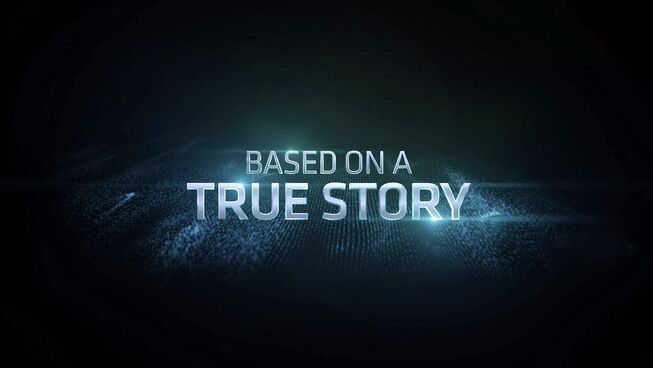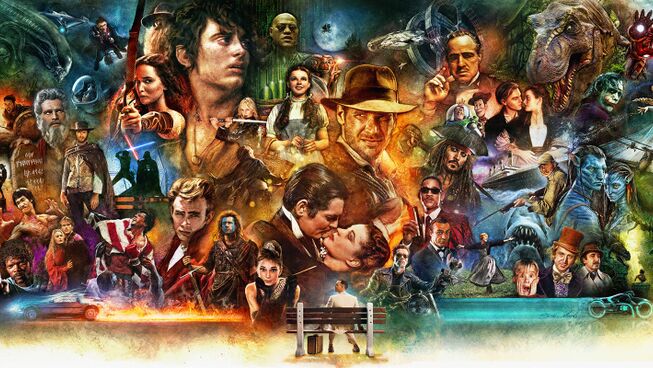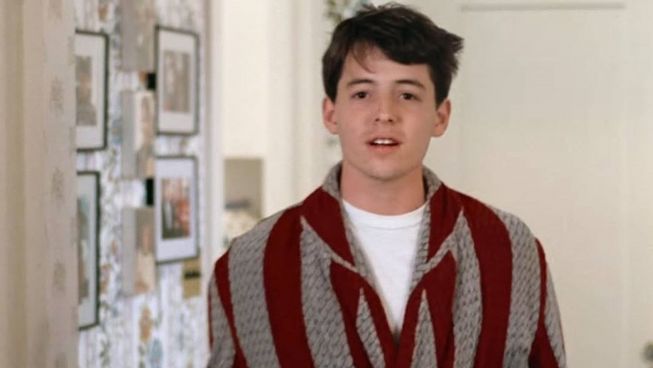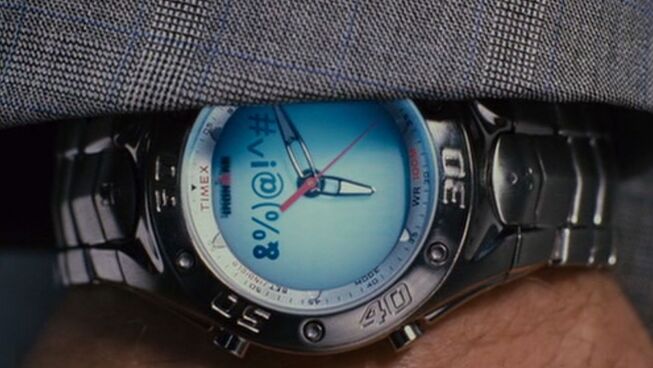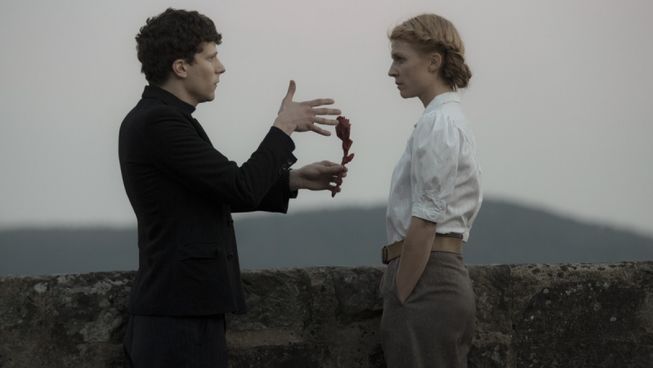
3 out of 5 stars
Who would have thought that the world’s most celebrated mime would have played such a significant role in World War II? Resistance is based on the true story of the famous French mime, Marcel Marceau (Jesse Eisenberg). Born Marcel Mangel, of Polish Jewish descent, he lived in the French city of Strasbourg, right on the German border.
Marceau and more than one million inhabitants of the ‘red zone’ were evacuated in 1939 when Hitler invaded Poland, the catalyst for World War II. The famous performance artist was relocated to Limoges with his brother, father and family friends. Marceau is presented as a heady teenager with artistic notions in the forefront of his mind, but he is convicted to see beyond himself when he observes the impact his art can have. This shift in priorities led him to join the French Resistance.
Marcel and love interest Emma (Clémence Poésy) are the two figures at the centre of the story. They both get involved in taking care of Jewish orphans and smuggling them out of occupied France. Despite their love for one another, they view the means of resistance in different ways. Emma, who has witnessed torture and death first hand, wants to fight with weapons of war, whilst Marcel believes survival should trump fighting. He articulates this view by saying, “If we want to resist, we have to make sure more Jews survive.”
At times, the screenplay felt too contrived and lacked depth. This can be seen in the depiction of the orphans who are at the heart of the story; they are given little agency or character development and remain somewhat one dimensional. Another example of the storyline going broad rather than deep can be seen in various scenes of Nazi oppression. Beyond the mistreatment of the Jews, we also see homosexuals, communists and dwarves being persecuted. Whilst these elements reflect history and of great importance, in this case they detract from the central narrative. Resistance is a film that suffers from doing too many things and consequently it fails to deliver a clear point or focus.
One of the other challenges of the movie came in the acting which was stilted by the inconsistent use of language. All of the French characters spoke in English with various foreign accents, whilst the German characters sometimes spoke German and sometimes spoke English. Marceau’s real-life fluency in French, German and English that made him an asset to the Allied forces is something we do not see. Also, the chemistry between Eisenberg and Poésy was not believable enough, and as a result, the characters felt detached from the story.
Resistance does present a relevant and interesting story. The closing text makes clear just how immense was the scale of atrocities committed against Jewish children and their families. In the end, by showing the power of these small but significant acts of resistance in wartime, the movie does a good job of exposing the horror of the Holocaust and its effect on the most vulnerable of society.
Reel Dialogue: How do we resist oppression and injustice? There are of course multiple ways of resisting; this film argues that even art has a role to play. Whilst the integration of the art of mime into the story could have been more cohesive, the presentation of how Marceau used art as resistance was clear and compelling. We see mime presented as an art form and something that brings joy and hope, but also as a useful tool for communicating and equipping children to survive and resist the threat of Nazism.
Another question to consider is why do humans even create art? Be it in the form of paintings, sculpture or as performance art, it is a complex idea to contemplate. The simple but profound answer is that a creative God forms us. The true master artist inspires the best of art. The human form and the rest of nature arouse the artist in all of us because it is part of our very DNA. The created are creative because we are the artistry of the master creator.
'But now, O Lord, you are our Father; we are the clay, and you are our potter; we are all the work of your hand.' - Isaiah 64:8
